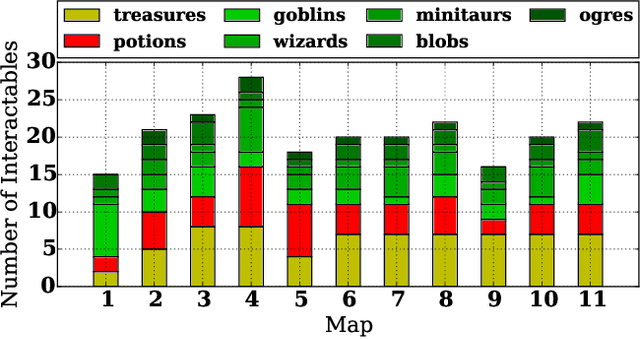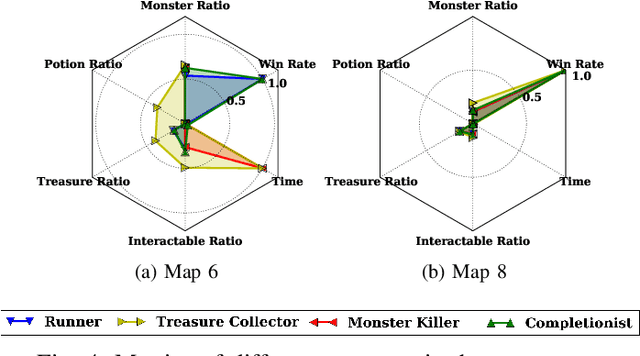Automated Playtesting with Procedural Personas through MCTS with Evolved Heuristics
Paper and Code
Feb 19, 2018



This paper describes a method for generative player modeling and its application to the automatic testing of game content using archetypal player models called procedural personas. Theoretically grounded in psychological decision theory, procedural personas are implemented using a variation of Monte Carlo Tree Search (MCTS) where the node selection criteria are developed using evolutionary computation, replacing the standard UCB1 criterion of MCTS. Using these personas we demonstrate how generative player models can be applied to a varied corpus of game levels and demonstrate how different play styles can be enacted in each level. In short, we use artificially intelligent personas to construct synthetic playtesters. The proposed approach could be used as a tool for automatic play testing when human feedback is not readily available or when quick visualization of potential interactions is necessary. Possible applications include interactive tools during game development or procedural content generation systems where many evaluations must be conducted within a short time span.
 Add to Chrome
Add to Chrome Add to Firefox
Add to Firefox Add to Edge
Add to Edge